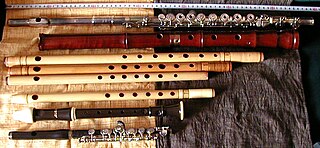
A diaspora (/daɪˈæspərə/) is a scattered population whose origin lies in a separate geographic locale. In particular, diaspora has come to refer to involuntary mass dispersions of a population from its indigenous territories, most notably the expulsion of Jews from the Land of Israel and the fleeing of Greeks after the fall of Constantinople. Other examples are the African transatlantic slave trade, the southern Chinese or Indians during the coolie trade, the Irish during and after the Irish Famine, the Romani from India, the Italian diaspora, the exile and deportation of Circassians, and the emigration of Anglo-Saxon warriors and their families after the Norman Conquest of England.
Network and networking may refer to:
DOD, Dod and DoD may refer to:
The Jewish diaspora or exile refers to the dispersion of Israelites or Jews out of their ancestral homeland and their subsequent settlement in other parts of the globe.

Fate is a generic role-playing game system based on the Fudge gaming system. It has no fixed setting, traits, or genre and is customizable. It is designed to offer minimal obstruction to role-playing by assuming players want to make fewer dice rolls.
Transnationalism is a social phenomenon and scholarly research agenda grown out of the heightened interconnectivity between people and the receding economic and social significance of boundaries among nation states.

Samuel Stewart Witwer is an American actor and musician. He is best known for portraying Crashdown in Battlestar Galactica, Davis Bloome in Smallville and Aidan Waite in Being Human. He voiced the protagonist Galen Marek / Starkiller in Star Wars: The Force Unleashed, the Son and Darth Maul in Star Wars: The Clone Wars and Emperor Palpatine in Star Wars Rebels.
A spore is an asexual biological reproductive mechanism.
Paizo Publishing is an American publishing company in Redmond, Washington that specializes in game aids and adventures for "the world's oldest fantasy roleplaying game" and its flagship spin-off game and setting, Pathfinder. The company's name is derived from the Greek word παίζω paizō, which means 'I play' or 'to play', and in 2014, the company changed its name to Paizo Inc. Paizo also runs an online retail store selling role-playing games, gaming aids, board games, comic books, toys, clothing and other products, and has an Internet forum community. The current CEO of Paizo is Lisa Stevens.
OTV is a publicly traded television station in Lebanon. It began broadcasting on 20 July 2007 on the Arabsat satellite, on the 11823MHz frequency. OTV launched officially in 2008 after a testing period of almost six months. OTV now covers the world through different broadcasting channels for European Union, Canada, United States, Australia, and the Arab World. In addition, www.otv.com.lb offers live streaming coverage on the internet. The OTV main news bulletin is also broadcast on Sawt Al Mada Radio
Diaspora was a massively multiplayer online roleplaying game created by Altitude Productions. Released from beta in June 2000. By the Christmas of 2000, the game boasted over 35,000 registered user accounts. By April the following year, it peaked at around 70,000 registrations. The game went offline in August 2001.

Dark Sun Online: Crimson Sands is an early massively multiplayer online role-playing game (MMORPG) that was developed and published by Strategic Simulations, Inc. in 1996 for Windows 95. Dark Sun Online is based on the licensed Dark Sun campaign setting for the Advanced Dungeons & Dragons tabletop role-playing game. Dark Sun Online was one of the first fully graphical MMORPGs.

The following is a timeline of tabletop role-playing games. For computer role-playing games see here.

Diaspora is a free personal web server that implements a distributed social networking service. Installations of the software form nodes which make up the distributed Diaspora social network.

Diaspora is a nonprofit, user-owned, distributed social network that is based upon the free Diaspora software. Diaspora consists of a group of independently owned nodes which interoperate to form the network. As of March 2014, there are more than 1 million Diaspora accounts.

A neo/new diaspora is the displacement, migration, and dispersion of individuals away from their homelands by forces such as globalization, neoliberalism, and imperialism. Such forces create economic, social, political, and cultural difficulties for individuals in their homeland that forces them to displace and migrate.

Friendica is an open, free, distributed social network. It forms one part of the Fediverse, an interconnected and decentralized network of independently operated servers.

Emily Care Boss is an indie roleplaying game designer, theorist and publisher. She was a foundational member of The Forge, an early leader in the indie role-playing game movement and is considered the creator of the American Freeform genre of roleplaying games, which combine indie RPG principles and mechanics with Nordic freeform and American chamber larp techniques. Her game, Under My Skin was winner of the Audience Choice Award at Fastaval 2009. She has been referred to as the "Dean" of the North American school of structured freeform game design.

The Babylon 5 Roleplaying Game is a role-playing game published by Mongoose Publishing in 2003.
Julia Gjika is an Albanian-born poet living in the United States. She is one of the few writers publishing in the Albanian language and writes poetry as well working as a journalist. Her poems have been praised by her peers and have been included in several publications of collected works.




















